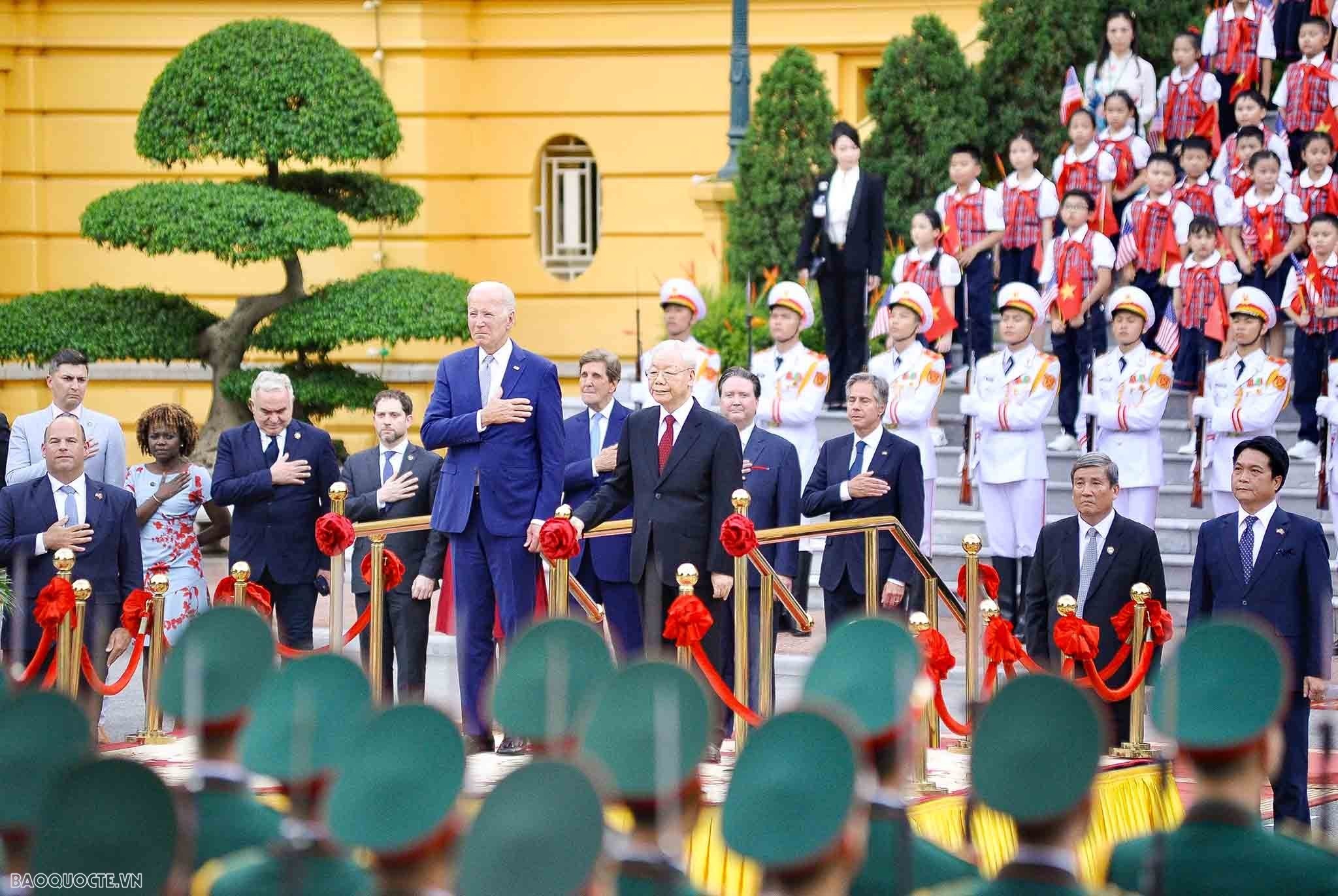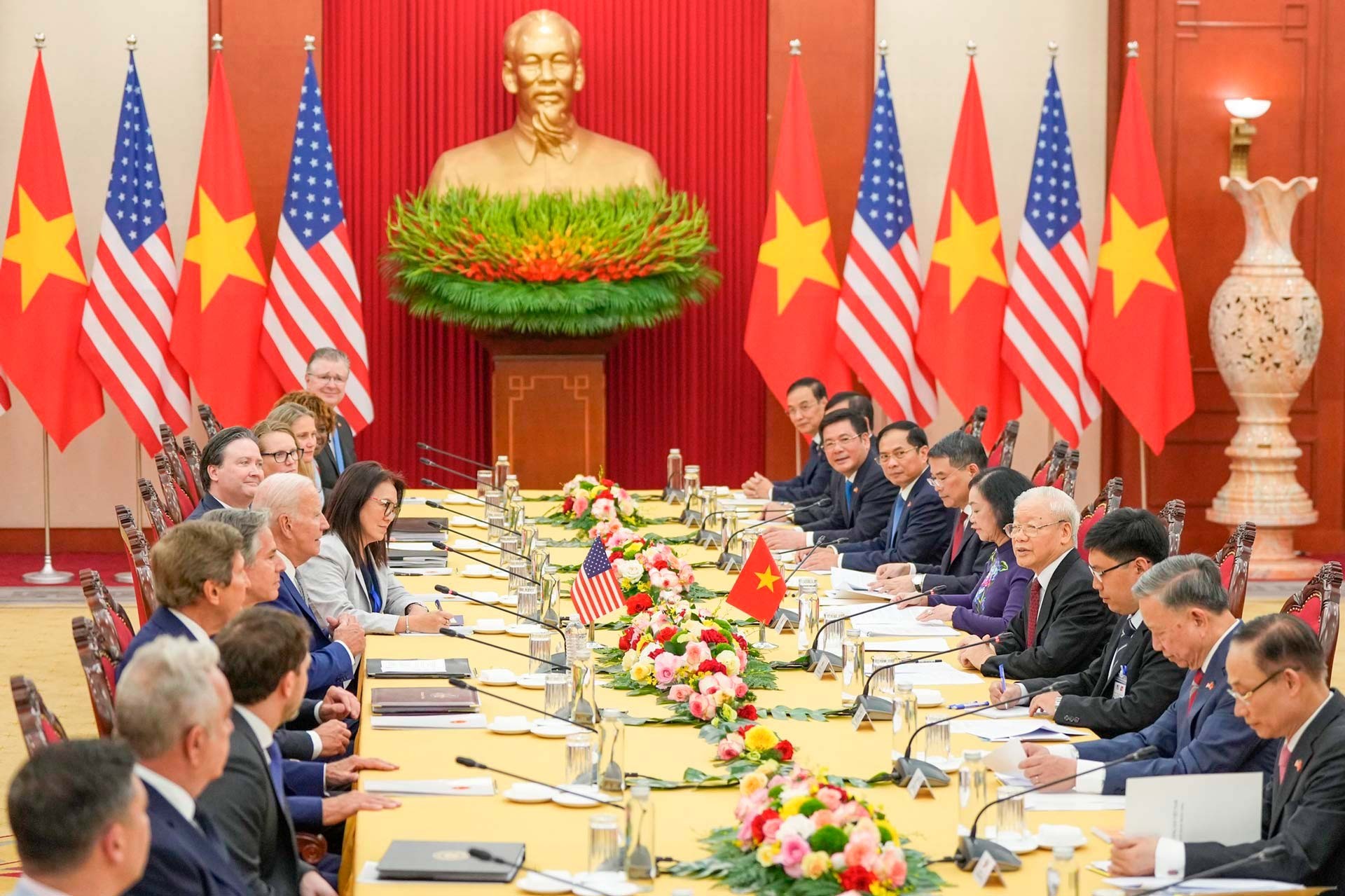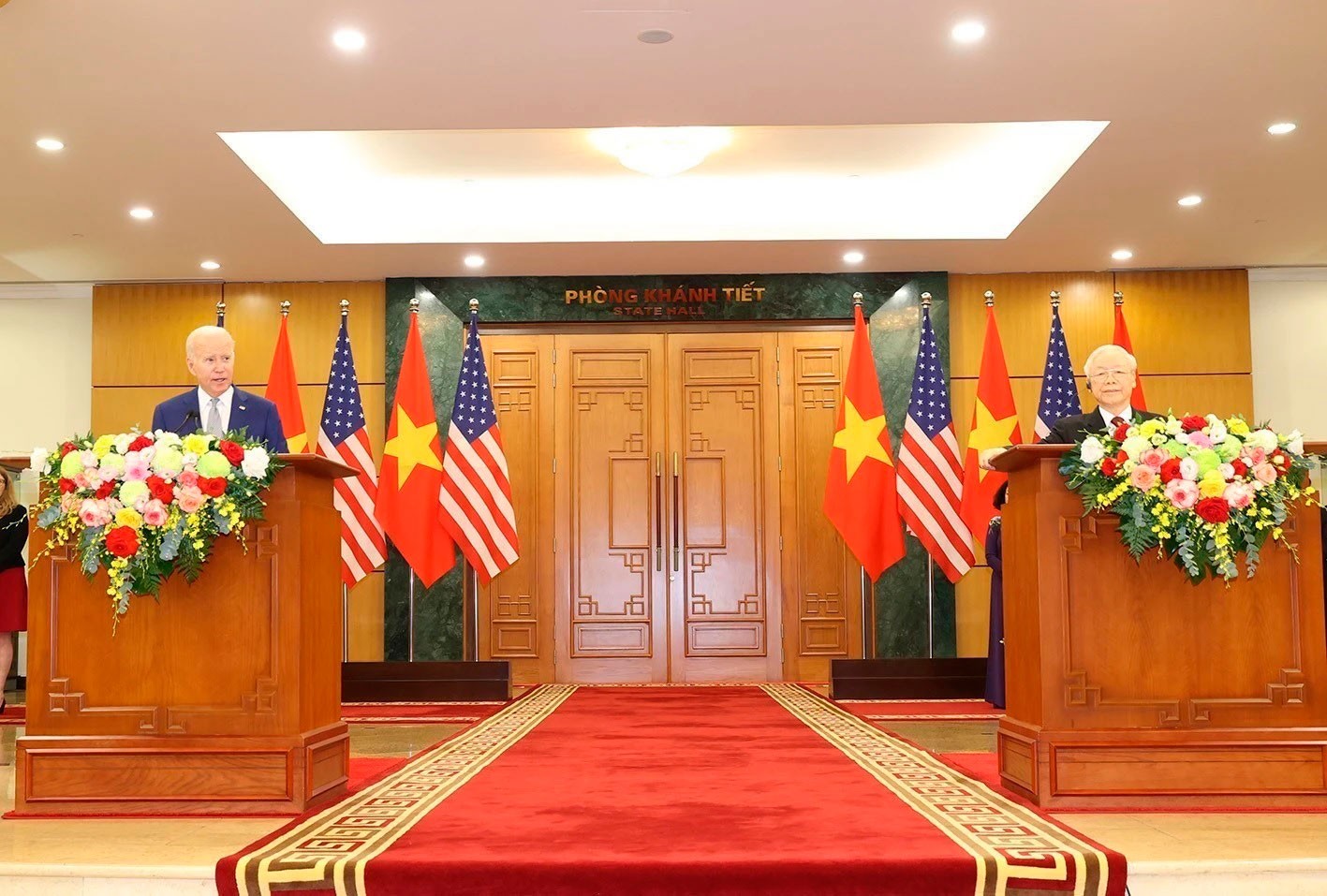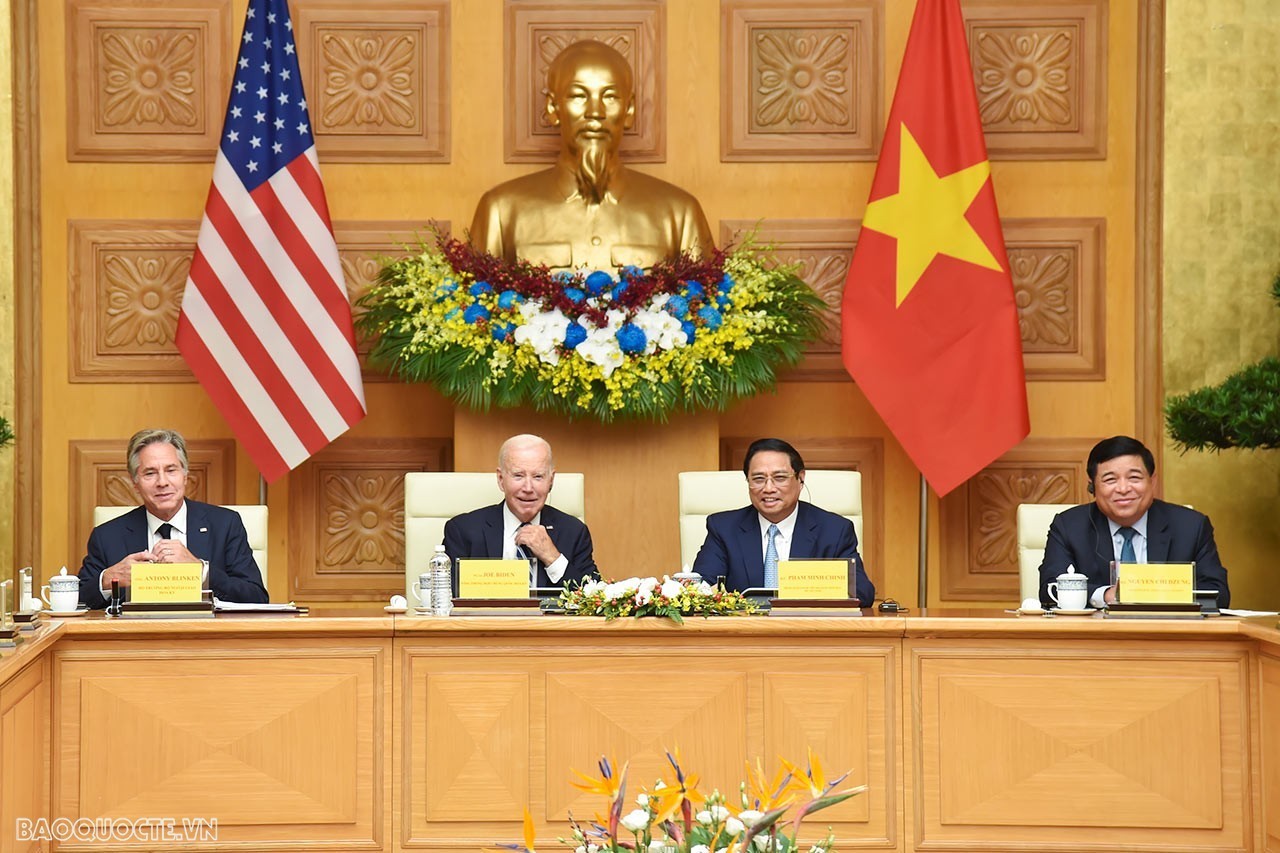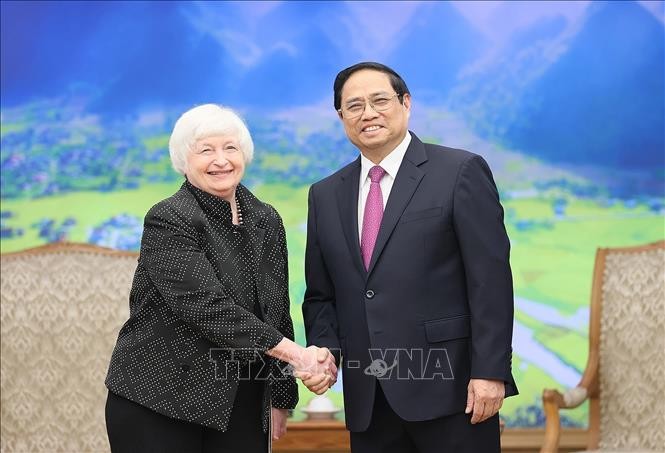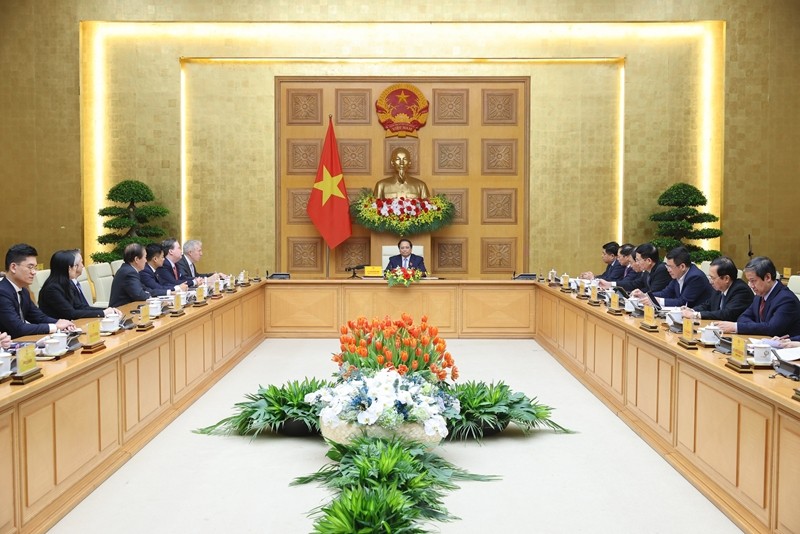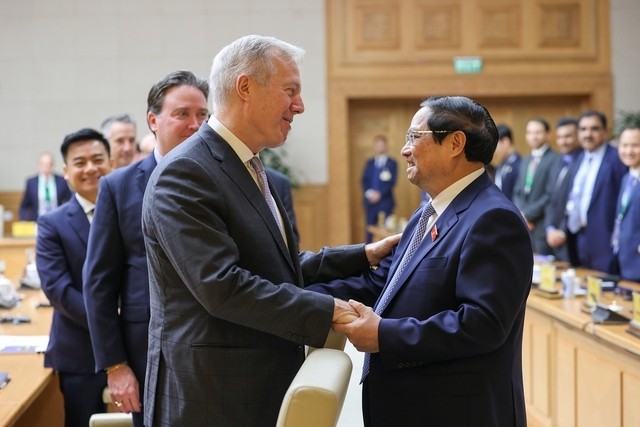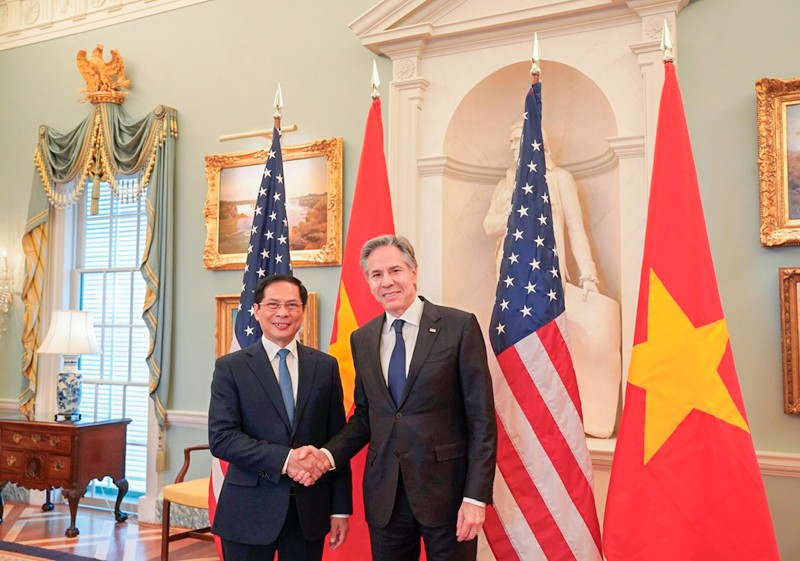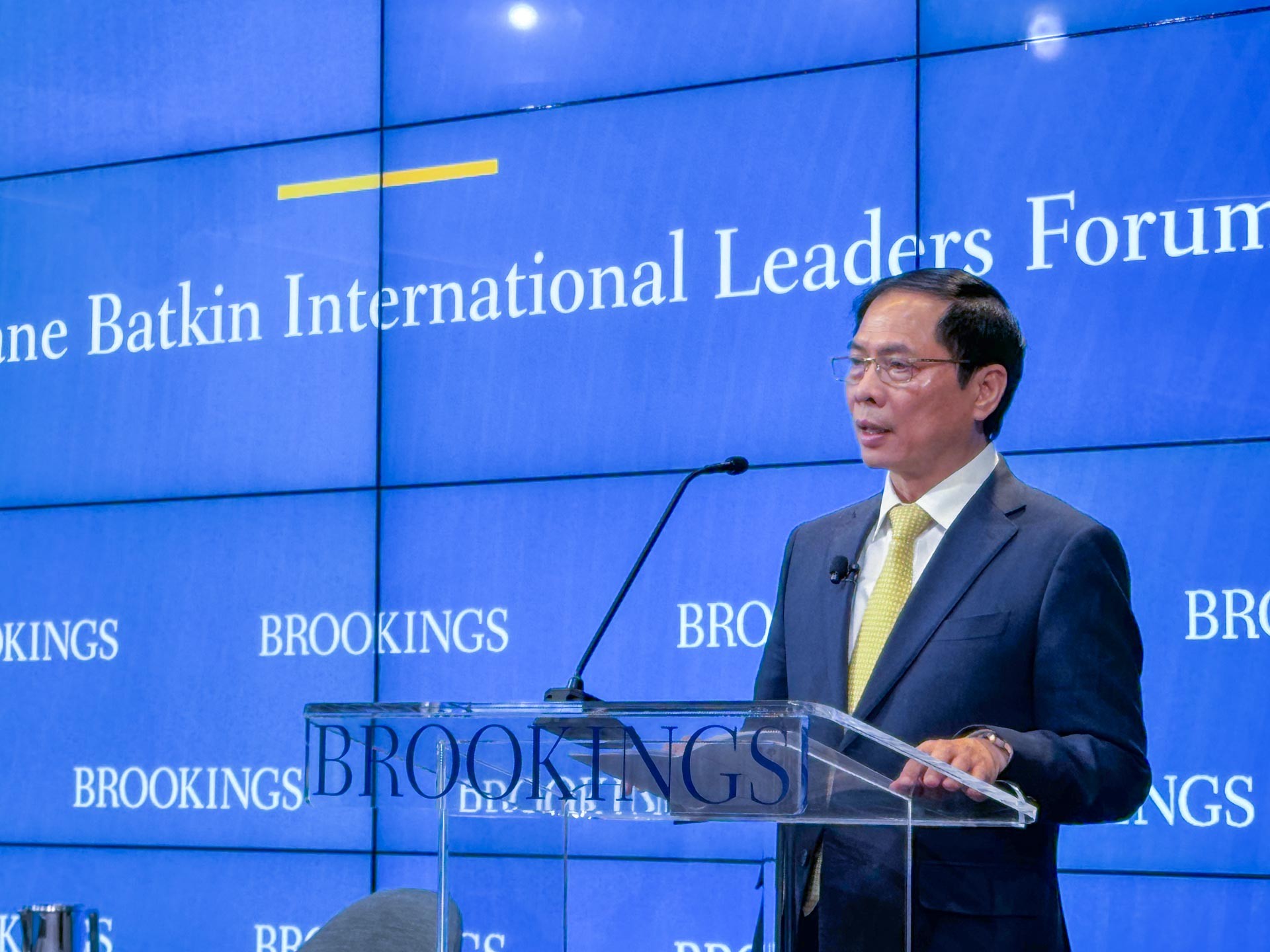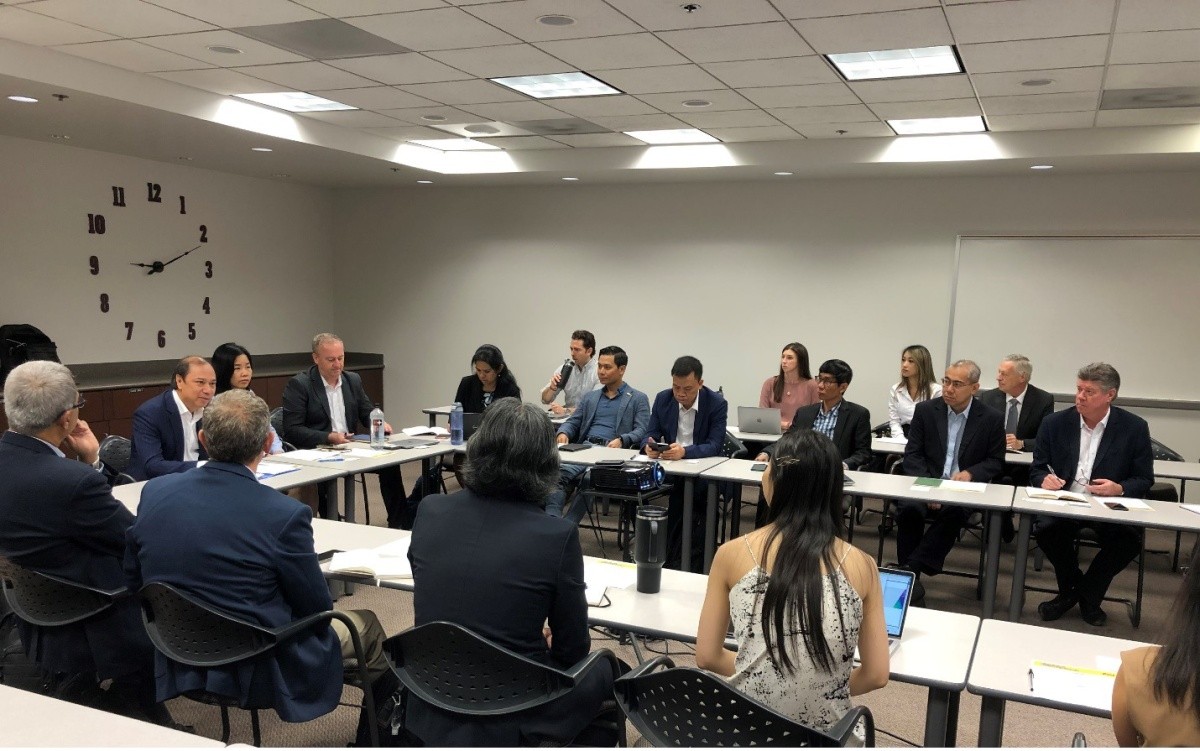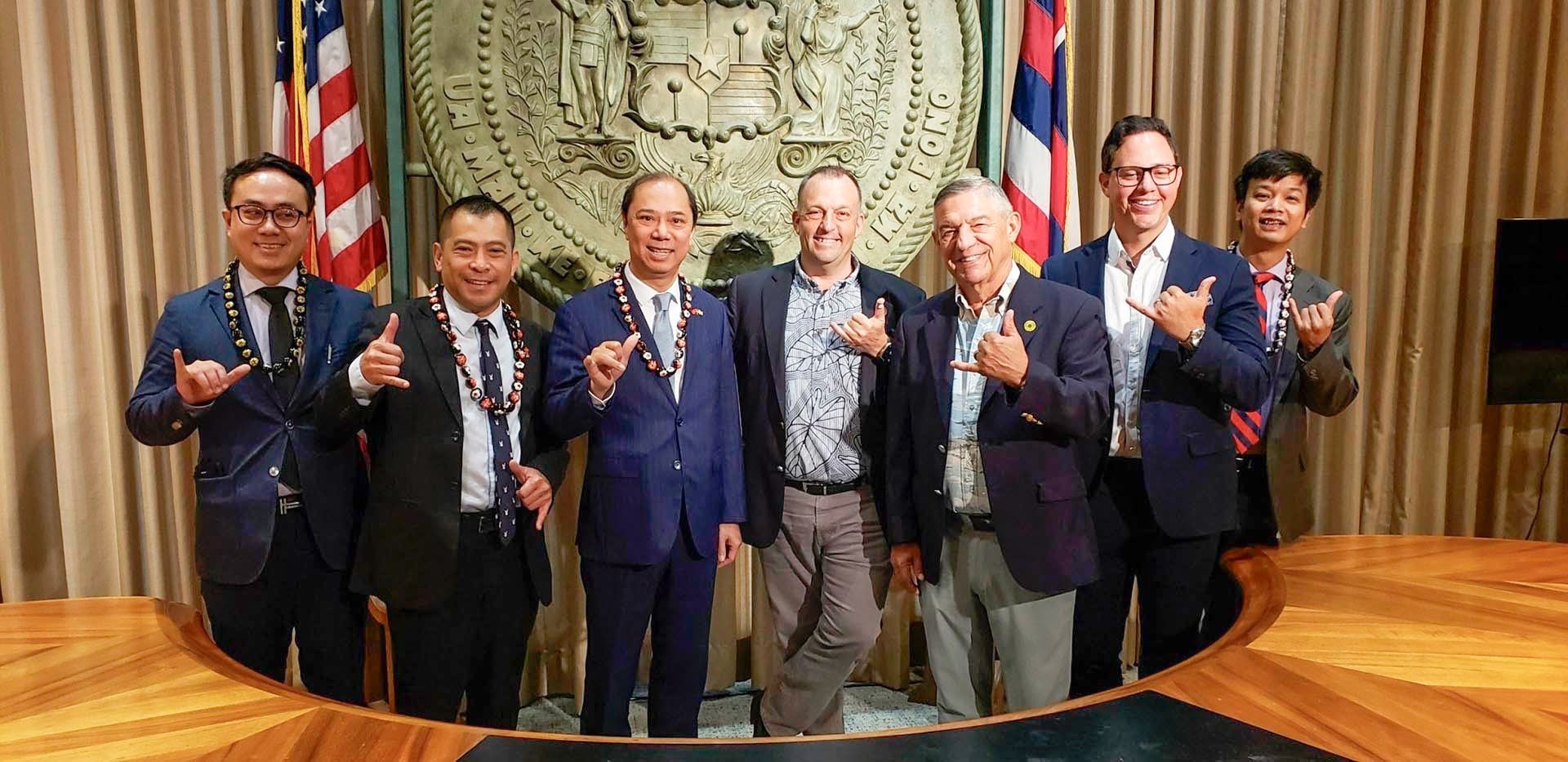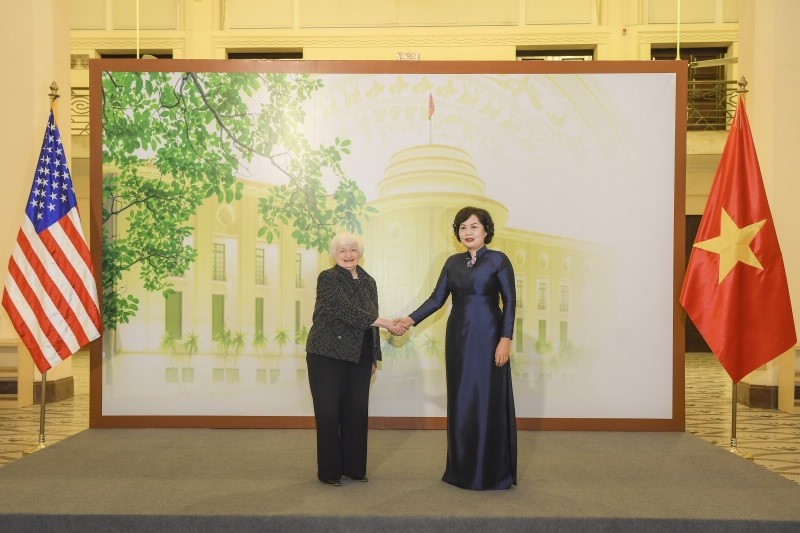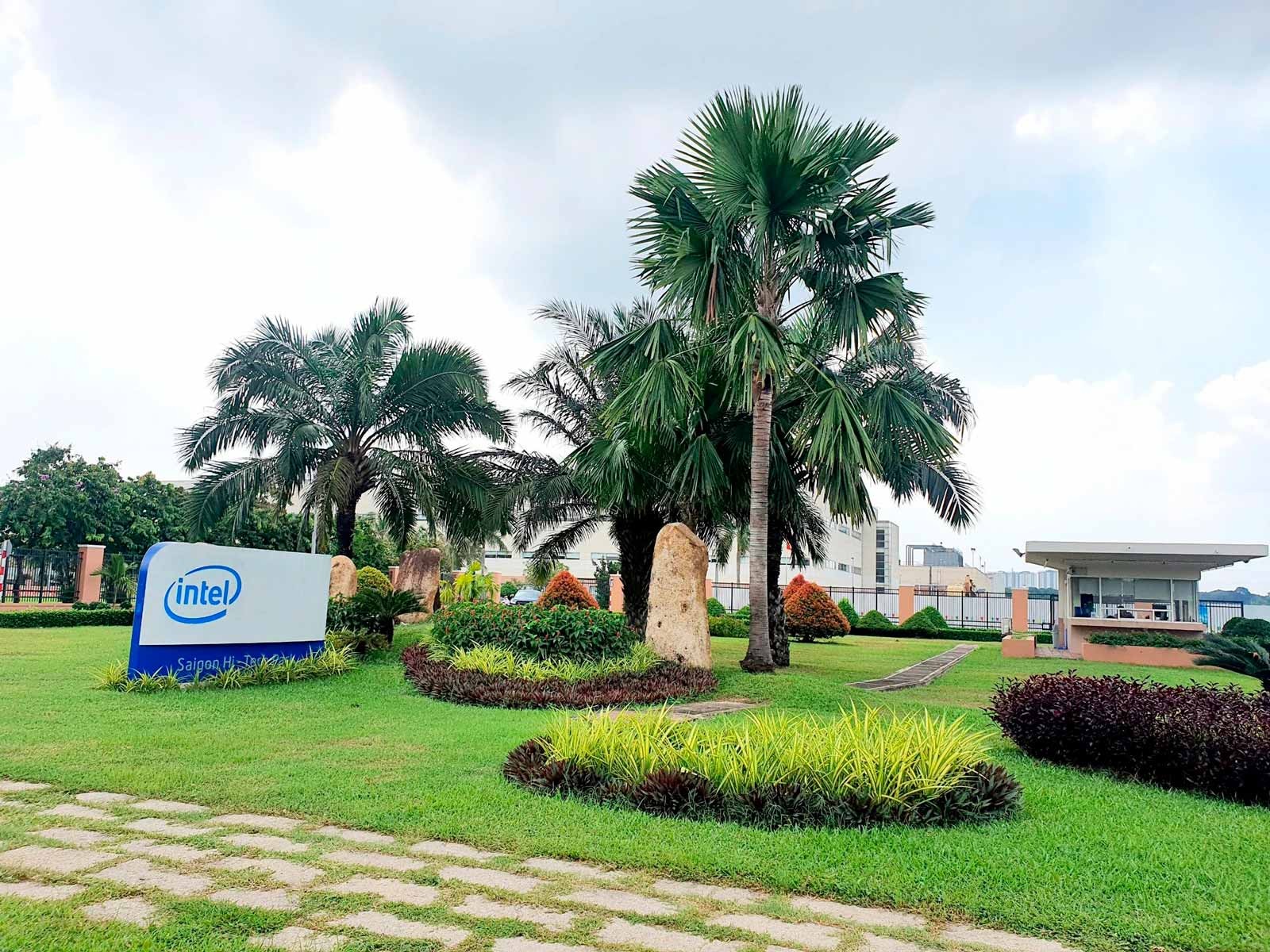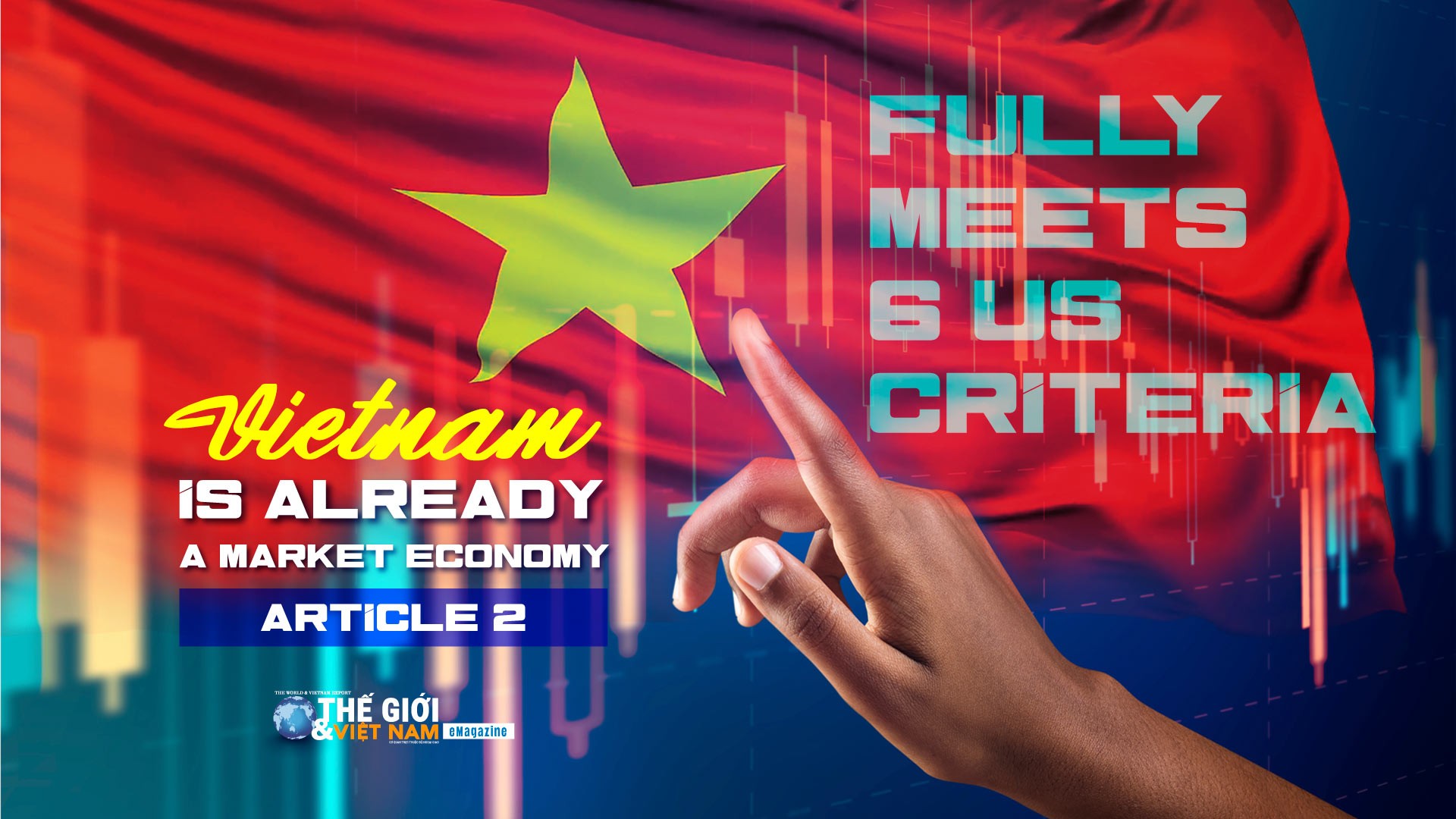
| Prompt recognition of Vietnam's market economy status by the United States would be consistent with the strengthening of the US-Vietnam Comprehensive Strategic Partnership. It would help concretise commitments to bring practical benefits to businesses and consumers in both countries. Recognising Vietnam as a market economy will help accelerate the shift of supply chains, in line with the US’ friend-shoring strategy to relocate their supply chains to safe and reliable countries. |  |
| That is the view of Ms Phan Minh Hoa, an Associate Lecturer in Economics at RMIT University in an interview with The World & Vietnam Report about Vietnam's market economy.
More than four years ago, a report by the International Monetary Fund (IMF) said: “Starting as one of the poorest countries in the mid-1980s, Vietnam has achieved rapid developmental progress, reaching lower middle-income status in 2010. The 1986 Doi Moi reforms initiated a broad-based economic transformation, which dismantled the largely planned economy, opened a closed economy to international markets and trade, and initiated pro-business reforms. In the aftermath of these policies, Vietnam sustained high economic growth rates that catapulted the country from one of the poorest to a lower emerging market economy within 25 years." What is your overall view of the current Vietnamese economy? After nearly 40 years of Doi Moi, Vietnam's economy has made remarkable progress. According to data from the World Bank (WB), during that period, Vietnam's real gross domestic product (GDP) increased nearly tenfold from US$36.67 billion in 1986 to US$358.92 billion in 2022. Real GDP per capita increased more than sixfold from US$598.9 to US$3655.46 (calculated in constant 2015 US$). The poverty rate has decreased, and the average life expectancy has increased. Vietnam has also deeply integrated into the international economy. It is a member of 16 free trade agreements (FTAs) that have taken effect, and is negotiating three other FTAs. Vietnam is among the global top 20 in terms of import and export revenues, with a very high trade openness (ratio of exports plus imports over GDP) of around 185%.
However, Vietnam still faces many obstacles in its development and international economic integration process. One unresolved obstacle for its import and export activities is that Vietnam is still not considered a market economy by some of its largest trading partners, notably the US. |
|
According to your observations and research, how has Vietnam strived to meet the six criteria for a market economy prescribed by the US? Immediately after extending the Normal Trade Relations (NTR) status to Vietnam in 2001, the US classified Vietnam as a "non-market economy". Being considered a non-market economy puts Vietnam at a disadvantage in anti-dumping and anti-subsidy lawsuits. For example, in the anti-dumping investigation of Vietnamese catfish in the 2000s, the US Department of Commerce did not use Vietnam's cost and price information but determined its own way of calculation. Specifically, in this case, data from Bangladesh and India were used as a benchmark, leading to a higher dumping margin and a heavier anti-dumping tax rate. To regain competitiveness for its exports, Vietnam has made efforts to be recognised by the US as a market economy. In September 2023, during President Joe Biden's visit to Vietnam, the leaders of the two countries upgraded the bilateral relationship to a Comprehensive Strategic Partnership, encompassing security and economic partnerships. Right before the visit, Vietnam officially asked the US to remove its status as a non-market economy. One month after the visit, the US Department of Commerce agreed to start a review of Vietnam’s non-market economy status, with the final decision expected to be issued on 26 July 2024. The six criteria based on which the US considers whether the market economy status are the extent of currency conversion within the country; wage negotiations between employees and employers; foreign investment in economic activities; state ownership and private ownership; government control over certain resources and prices; and other factors. |
| Let us look at Vietnam's efforts with each criterion prescribed by the US: Extent of currency conversion: Improving the convertibility of the Vietnamese dong is a goal stipulated in the Ordinance on Foreign Exchange Control. The State Bank of Vietnam employs a managed floating exchange rate regime, having expanded the exchange rate band from 1% to 3% in 2015, before raising it to the current 5%. In order for the Vietnamese dong to become a freely convertible currency, Vietnam has made a lot of efforts to ensure macroeconomic balances such as successfully controlling inflation in recent years (in the context of high inflation worldwide), successfully eliminating the dollarisation of the economy, increasing people's confidence in the Vietnamese dong, increasing foreign currency reserves, improving the foreign exchange management mechanism and reforming exchange rate policies. It is important to note that the Vietnamese dong has been included in the US’ currency manipulation monitoring list, most recently in the US Department of the Treasury's November 2023 report due to a trade surplus with the US (Vietnam ranks third among countries with a trade surplus with the US) and a large global current account surplus. However, the Vietnamese Government, specifically the State Bank, has continued to strengthen diplomatic cooperation with the US Government on monetary issues. Later, the US Department of the Treasury determined that Vietnam was not manipulating the currency. According to Professor David Dapice from Harvard University, Vietnam's exchange rate is managed but not manipulated for unfair advantage. Negotiating salaries and wages between employees and employers: Vietnam has a full set of laws to protect the rights of both parties such as the Labour Code, the Criminal Code, and the Law on Prevention and Combating of Human Trafficking. Personally, I believe that wage determination is actually done by negotiation between employer and employee, although it is worth noting that opponents to Vietnam’s market economy status are still debating this point. Vietnam has also joined the Comprehensive and Progressive Agreement for Trans-Pacific Partnership (CPTPP), in which Vietnam agrees to give independent labour unions a greater role. Vietnam was elected to the United Nations Human Rights Council for the 2023-2025 term and will apply for candidacy in the next term as well, demonstrating its efforts to protect human rights and workers' rights. Level of foreign investment in economic activities: Vietnam has clearly met this criterion. The country has attracted numerous foreign direct investors and many American businesses have been investing in Vietnam. The FDI sector accounts for over 70% of Vietnam's industrial production value and 70% of its exports. Issue of state ownership and private ownership: Vietnam's emphasis on state-owned enterprises’ leading role is often a point used by critics to argue that Vietnam is a non-market economy. However, according to Steptoe LLP Attorney Eric Emerson, representing Vietnam's Ministry of Industry and Trade, there is less government support for state-owned firms in Vietnam than in India, and more openness to foreign investment than in Indonesia, Canada and the Philippines - countries that have been recognised as market economies by the US. Subsidies for state-owned enterprises have been cut, and in all the recent National Party Congresses, the role of the private economy has been formally affirmed and emphasised. The private economy contributes nearly 45% of the country's GDP, the highest among the three sectors: public, private and FDI. The 13th National Party Congress also clearly stated that the private economic sector is encouraged to develop in all industries and fields that are not prohibited by law, and private companies are supported to develop into strong and highly competitive businesses. The Party Congress also set a goal of having two million enterprises by 2030, with the private sector contributing 60-65% of the GDP and total social investment capital averaging 33-35% of the GDP. |
Extent of government control over certain resources and prices: Vietnam has abandoned price controls. The 2023 Law on Prices excludes items such as electricity, salt, and sugar, and retains only nine essential items that need price stabilisation, i.e. petrol, diesel, liquefied petroleum gas, infant formulas, rice, livestock feed, vaccines, pesticides, and essential medicines for humans. Intervention measures are also clearly specified to only be used for a certain period of time and for urgent reasons such as natural disasters or supply chain disruptions. It can be seen that intervention, if any, does not affect trade and investment at all. Other factors: This is up to the US Department of Commerce to decide and can be affected by a number of other reasons. So, do you think that Vietnam is now a market economy? Why? To answer this question, we should draw on the significant efforts that Vietnam has made as mentioned above. We can also look at the list of 72 countries that have recognised Vietnam as a market economy, including large and/or developed economies such as China (2004), Russia and ASEAN members (2007), Australia, New Zealand (2008), India and South Korea (2009), Japan (2011), members of the European Free Trade Association (EFTA) such as Norway and Switzerland (2012), Canada (2016) and most recently the United Kingdom (2023). Although not everything is perfect, with Vietnam’s ongoing efforts and the recognition of major partners, Vietnam has essentially operated as a market economy.
According to the World Bank, Vietnam's shift from a centrally planned economy to a market economy has brought many successes. Vietnam is now one of the most dynamic countries in the East Asia and Pacific region. In America, there are currently two schools of thought, one is to recognise Vietnam as a market economy, the other opposes it. Why is that the case? No policy can garner 100 % support, especially in international trade when there are always interest groups who are impacted to different degrees. There are groups of industries that benefit from free trade and export growth, and then there are domestic manufacturing industries that must compete with imports. The National Retail Federation in the US has supported the recognition of Vietnam as a market economy, citing Vietnam's reform in general, openness to foreign investment, and freedom of wage negotiation and the currency convertability, especially for important consumer goods like apparel, footwear, consumer electronics, and furniture. It is evident that recognising Vietnam as a market economy will reduce costs and product prices, benefitting retailers and American consumers. Meanwhile, opposition comes from a number of lawmakers in the US Senate and House of Representatives, the Southern Shrimp Alliance, the American Shrimp Processors Association, United Steelworkers, etc. It is common knowledge that steel and shrimp are products that Vietnam often faces anti-dumping lawsuits in the US. For example, the anti-dumping tax on Vietnamese frozen shrimp is currently 4.30-25.76%, and for their Chinese counterparts, it is 0.07-112.81% (Vietnam and China are two countries classified as non-market economies). Meanwhile the anti-dumping tax on Thai and Indian shrimp -- both recognised as market economies -- only reaches a maximum of 6.82% and 15.36%, respectively. Although critics argue that Vietnam does not fully meet the six criteria above, the most important reason is clearly that they are concerned about Vietnamese shrimp and steel exports gaining competitiveness, threatening market share, and taking away jobs. In addition, amidst the US - China trade war, there are concerns that Chinese companies investing in Vietnam can also take advantage of Vietnam’s market economy status to increase exports to the US, and avoid high taxes imposed by the US on China, such as on steel products.
In your opinion, should conflicting views be an excuse for the US to delay recognising Vietnam's market economy? Why? As mentioned above, there will always be differing viewpoints in economics, stemming from the different interests of different parties. From Vietnam's side, after more than two decades of suffering disadvantages in anti-dumping lawsuits, the removal will clear obstacles to Vietnam's exports, and motivate the remaining trading partners to recognise Vietnam as a market economy. For the US, to decide whether to delay or officially recognise Vietnam as a market economy, they will need to consider both for and against arguments. From an economic perspective, the Government should make decisions based on, first and foremost, the total welfare and not a few interest groups. Free trade will bring great benefits to consumers, such as lowering product prices, increasing choices, promoting cooperation, and expanding markets, although some domestic industries may no longer be protected. However, the final decision of the US Department of Commerce will not only be influenced by economic calculations, but other factors as well. If Vietnam is recognised as a market economy, what benefits will US businesses gain? As the two countries have upgraded their relationship to the highest level – Comprehensive Strategic Partnership, what does recognising Vietnam's market economy mean and what benefits does it bring to bilateral cooperation? Vietnam is one of the main manufacturing hubs of US businesses, and one of the top 10 global trading partners of the US. In 2023, the US pledged US$2 million to support the development of Vietnam's semiconductor industry and US$12 million to develop digital infrastructure. Vietnam is also one of 14 countries participating in negotiations for the Indo-Pacific Economic Framework for Prosperity proposed by the US.
|
American businesses exporting to Vietnam and investing in production here will benefit from Vietnam’s market economy designation. According to former US Ambassador to Vietnam Ted Osius, US business activities in Vietnam will be improved thanks to the upgrade to a Comprehensive Strategic Partnership, and the decision to recognise Vietnam’s market economy status will not jeopardise the economy or security of the US. The US needs to take advantage of the opportunity to continue building this bilateral relationship, especially as its competitors are also taking advantage of their trade agreements signed with Vietnam. Mr Murray Hiebert, an expert at the US-based Center for Strategic and International Studies (CSIS), wrote in a commentary titled "High Time for the United States to Graduate Vietnam from Its Nonmarket Economy Status" in late April 2024 that the US is making people “befuddled” by classifying Vietnam as a non-market economy along with 11 other countries, while being a comprehensive strategic partner of Vietnam. This is the case even though Hanoi has emerged as one of Washington’s closest partners in Southeast Asia. What do you think about this point of view? I agree with the above point of view. Prompt recognition of Vietnam's market economy status by the US would be consistent with the strengthening of the US-Vietnam Comprehensive Strategic Partnership. It would help concretise commitments to bring practical benefits to businesses and consumers in both countries. From a geopolitical perspective, amidst concerns that Vietnam imports a lot of raw materials and attracts investment from China, thus increasing the risk of Chinese goods being exported from Vietnam to avoid the tariffs, I support the US National Retail Federation’s view that recognising Vietnam as a market economy will help accelerate the shift of supply chains from China to Vietnam, in line with the US’ friend-shoring strategy to relocate their supply chains to safe and reliable countries. Thank you for the interview! Interviewer: Tran Lieu | Design: LimDim | Photos: VNA, TG&VN... |


